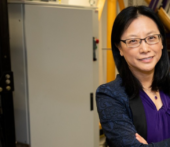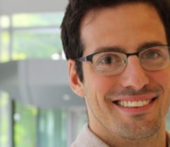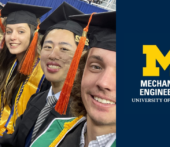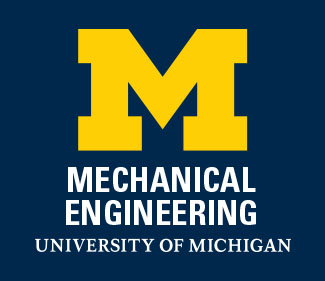
03/18/2024
Real-world walking data informs machine learning model.

Real-world walking data informs machine learning model.

A new tool in the fight against superbugs goes beyond protein folding simulations like AlphaFold, potentially revealing antibiotic candidates.

A gathering of a few of the many efforts mechanical engineers are putting towards a greener future. Happy Earth Day!

Experiments with custom-made biologging devices offer new insight into dolphin swimming and energy requirements.

Dr. Cao’s lecture, titled “Bring Flexibility and Innovation to Manufacturing Processes,” focused on how to integrate fundamental process mechanics, process control, and techniques, including machine learning, to achieve effective and efficient predictions of a material’s mechanical behavior during manufacturing processes.

Efforts to model air flow and track drug particles for specific drugs and patients are often costly, but a range of options are available to DPI designers for problem-solving through the complexities of achieving appropriate flows for each drug and patient, Dr. Capecelatro argues.

Each year, some 3,500 coin cell batteries are swallowed by children and toddlers, causing internal burns in the esophagus and fatalities. A team of ME undergraduates who participated in the RISE ME390 program has received external funding through the VentureWell e-team program to help commercialize their safe battery storage innovation.

Diann Brei, UM Professor of Mechanical Engineering and Chair of Integrative Systems + Design (ISD), was selected to receive the 2022 ASME Machine Design Award.

The American Society of Biomechanics recognizes Shorya Awtar for his outstanding work in translational biomechanics research, entrepreneurship, and societal benefit.

Affordable proof-of-concept device automates the manual squeezing required by bag valve masks.